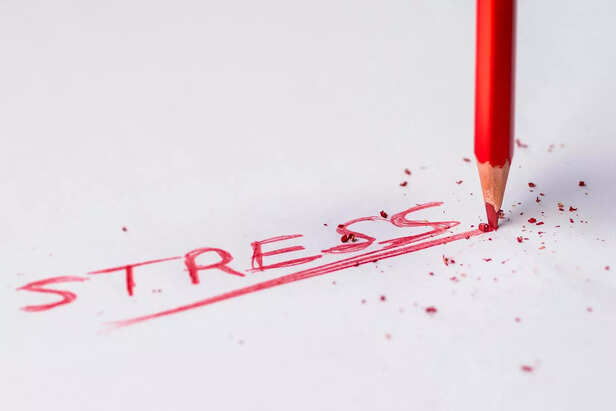The ‘Free Advice’ Syndrome: Why Every Indian Thinks They Know Best
Riya Kumari | Feb 20, 2025, 23:57 IST
( Image credit : Pexels, Timeslife )
You see, in this great, gloriously chaotic subcontinent, advice is not something you seek. It seeks you. Like a homing missile. Or your mother’s phone call when you’re about to do something mildly reckless. It’s free, it’s unlimited, and it’s dispensed with the confidence of a Nobel laureate—whether the giver has actual knowledge on the subject or just watched a WhatsApp forward about it.
Step into any Indian household, and you’ll find that wisdom doesn’t whisper—it shouts. Loud, insistent, and unsolicited. From childhood to old age, life here is a never-ending parade of advice, disguised as concern, obligation, or love. And here’s the thing—some of it is valuable. Passed down through generations, woven into the cultural fabric, advice has been our way of keeping each other afloat. But somewhere along the way, something shifted. Advice stopped being about guidance and started being about control. It became less about helping and more about being right.
1. Everyone’s a Philosopher (But Who’s Listening?)

There is something deeply ironic about a society where everyone thinks they have wisdom to share, but so few actually listen. The moment you share a problem, a floodgate opens: "You know what I would do?"—as if solutions exist in neat little templates, waiting to be copy-pasted into lives that are infinitely more complicated.
It’s never a conversation. It’s a monologue. And that’s the problem—because real wisdom isn’t about talking, it’s about understanding. Advice should be about the person receiving it, not the person giving it. But in a world where everyone is eager to fix you, who’s taking the time to know you?
2. The Burden of Being Told Who to Be

The heaviest kind of advice isn’t the everyday commentary on what you should eat or how you should dress. It’s the kind that tells you who you should be.
“You should aim for stability, not dreams.”
“You should get married, it’s time.”
“You should change, because society won’t.”
And so, we shrink ourselves into boxes we never chose, living lives that were never really ours. Because when advice comes wrapped in expectation, it stops being advice—it becomes pressure. A weight passed from generation to generation, carried forward without question.
3. The Fear That Drives Free Advice

At its core, this isn’t just about opinions. It’s about fear. A parent tells their child to take the safer career path, not because they don’t believe in them, but because they fear failure. A relative pushes for marriage, not out of concern for happiness, but because they fear judgment. A society demands conformity, not because it lacks progress, but because it fears change.
So much of this relentless advising isn’t wisdom—it’s projection. It’s people passing down their own unresolved anxieties, mistaking them for guidance. And the tragedy? Most don’t even realize they’re doing it.
4. The Courage to Choose for Yourself

Real wisdom doesn’t force itself on you. It waits. It offers itself gently, ready to be accepted if you need it. And if there’s one thing we need to learn, it’s this: Not every piece of advice needs to be followed.
Because the only thing worse than making a mistake is living a life where you never had the right to make one. Mistakes are where we grow. They are how we find out who we really are. The world will always have something to say. The real question is—who do you want to be beneath all that noise?
1. Everyone’s a Philosopher (But Who’s Listening?)

Listen
( Image credit : Pexels )
There is something deeply ironic about a society where everyone thinks they have wisdom to share, but so few actually listen. The moment you share a problem, a floodgate opens: "You know what I would do?"—as if solutions exist in neat little templates, waiting to be copy-pasted into lives that are infinitely more complicated.
It’s never a conversation. It’s a monologue. And that’s the problem—because real wisdom isn’t about talking, it’s about understanding. Advice should be about the person receiving it, not the person giving it. But in a world where everyone is eager to fix you, who’s taking the time to know you?
2. The Burden of Being Told Who to Be

Stress
( Image credit : Pexels )
The heaviest kind of advice isn’t the everyday commentary on what you should eat or how you should dress. It’s the kind that tells you who you should be.
“You should aim for stability, not dreams.”
“You should get married, it’s time.”
“You should change, because society won’t.”
And so, we shrink ourselves into boxes we never chose, living lives that were never really ours. Because when advice comes wrapped in expectation, it stops being advice—it becomes pressure. A weight passed from generation to generation, carried forward without question.
3. The Fear That Drives Free Advice

Fear
( Image credit : Pexels )
At its core, this isn’t just about opinions. It’s about fear. A parent tells their child to take the safer career path, not because they don’t believe in them, but because they fear failure. A relative pushes for marriage, not out of concern for happiness, but because they fear judgment. A society demands conformity, not because it lacks progress, but because it fears change.
So much of this relentless advising isn’t wisdom—it’s projection. It’s people passing down their own unresolved anxieties, mistaking them for guidance. And the tragedy? Most don’t even realize they’re doing it.
4. The Courage to Choose for Yourself

Choice
( Image credit : Pexels )
Real wisdom doesn’t force itself on you. It waits. It offers itself gently, ready to be accepted if you need it. And if there’s one thing we need to learn, it’s this: Not every piece of advice needs to be followed.
Because the only thing worse than making a mistake is living a life where you never had the right to make one. Mistakes are where we grow. They are how we find out who we really are. The world will always have something to say. The real question is—who do you want to be beneath all that noise?
